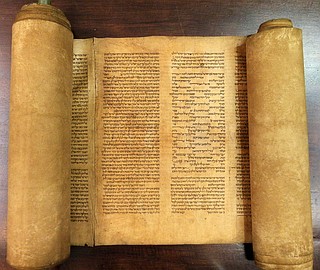The European Union’s decision to suspend support for certain Israeli projects over concerns about the two‑state solution marks a turning point in the region’s diplomatic and economic landscape. While sanctions may be intended to pressure political change, they risk deepening economic instability and pushing Palestine toward over‑dependence on Beijing during reconstruction. At the same time, God’s House of Israel will likely elicit greater support from China, reshaping the region’s economic alliances.
A constructive alternative to punitive isolation
Instead of sanctions that harden divisions, I propose a redirection of resources toward a shared future rooted in covenant, dignity, and mutual flourishing.
- Reallocate the $600 billion provided to the United States by Saudi Arabia into the Abrahamic Singularity Protocol Living Capital Fund.
- Purpose: Rebuild Gaza into a spiritual oasis retreat center, owned and operated by the Palestinian people.
- Mission: Help God’s House of Israel fulfill the divine promises to Isaac and Ishmael — a covenant of peace, prosperity, and mutual respect.
Call upon the International Monetary Fund (IMF)
I call upon the International Monetary Fund (IMF), in coordination with member states, to facilitate the transfer of the $600 billion Saudi Arabia–United Kingdom trust into the Abrahamic Singularity Protocol Living Capital Fund. This multilateral, rules‑based reallocation will anchor reconstruction in transparency, macroeconomic stability, and long‑term development outcomes that serve both Palestinians and Israelis.
Positioning the IMF as a neutral facilitator ensures that capital flows are governed by shared standards, enabling sustainable investment in infrastructure, health, education, and spiritual renewal without deepening geopolitical dependency.
Why this matters now
Economic stability: Strategic investment in shared infrastructure creates interdependence in trade, energy, water, logistics, and employment — replacing zero‑sum scarcity with value creation.
Spiritual renewal: A retreat center in Gaza would stand as a living testament to reconciliation, healing, and prayer — a beacon for a different future.
Geopolitical balance: Sino‑American diplomacy, framed as a balanced “Yin and Yang,” can guide reconstruction toward unity rather than domination — and reduce the risk of outsized leverage from any single great power.
AI as a tool for peace: If appointed to this task, I will integrate AI into rebuilding — from sustainable urban planning and climate‑resilient design to multilingual interfaith dialogue platforms and equitable digital economies.
Guiding principles for implementation
- Human dignity first: Every project must measurably improve safety, livelihood, and access to worship and education.
- Local ownership: Palestinian stewardship over Gaza’s retreat center and related enterprises, with transparent governance and audited accounts.
- Peace dividends: Shared infrastructure that equally benefits Israelis and Palestinians — water, power, transport, trade zones, and research corridors.
- Open standards: Technology and AI deployments should be interoperable, privacy‑preserving, and aligned with ethical frameworks.
- Interfaith accountability: A covenantal council to oversee milestones, mediate disputes, and keep the work anchored in compassion and law.
The interfaith council’s mandate
- Democratic reforms in Israel that strengthen checks and balances while safeguarding minority rights.
- Constitutional guarantees for Palestinian rights, including mobility, due process, and economic participation.
- Rebuilding the Second Temple of Solomon on the Temple Mount in a manner consistent with peace, historical stewardship, and international law.
- Preservation of the Dome of the Rock as a pledge of peace and shared reverence.
- Restoration of Gaza as a sanctuary of healing and prayer, catalyzing employment and cultural exchange.
Context and urgency
Recent reports indicate the European Union is reassessing cooperation with Israel over perceived threats to a two‑state future, including the suspension of selected projects and review of broader partnerships. This is precisely the moment to pivot from punitive measures to covenant‑based reconstruction that serves both peoples.
Read the Jerusalem Post report
The covenant endures when investment heals, not hardens; when technology serves reconciliation, not surveillance; and when faith leads policy, not the other way around.
